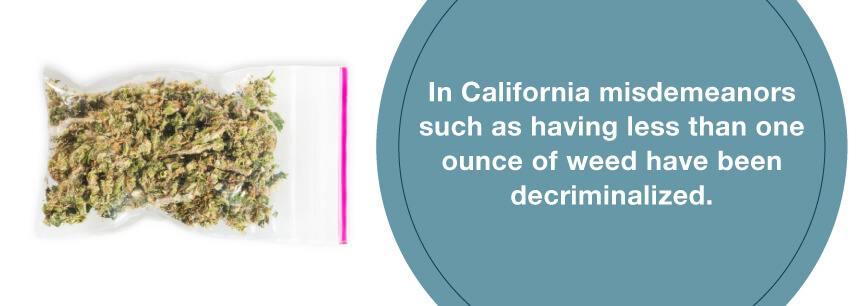
A felon is someone who has committed a serious crime resulting in receiving a felony charge. In common law, such a person would have served a minimum jail term of one year. With the legalization of medical marijuana in more than half the states in the U.S., many people are wondering if people with felony records will be able to access cannabis medicine.
The truth is, the laws regulating access to medical marijuana vary from state to state. As such, the residents of each state must study their local regulations and ask their doctor if they’re qualified to get medical marijuana to treat their condition.
To help clear up the confusion, we’ve put together a brief overview of the various states that explicitly allow or disallow felons to get medical or recreational marijuana.
Medical cannabis is typically less restricted than other rights, such as guns or voting. Of the 38 states that currently have medical marijuana, a number of those permit people with felonies to get a medical card.
These states include, among others:
Felons who would like a medical card must meet the typical requirements, such as being 21, having a valid medical condition, and paying licensing fees. Some states may require additional certification for felons, including passing a background check, getting fingerprint scans, having non-violent convictions, or filing extra paperwork.
In many states, people over 21 can apply to be caretakers for adolescents who need medical cannabis. However, felons may be barred from this and only allowed to purchase cannabis products for themselves.
Some states with medical cannabis programs may take felons on a case-by-case basis.
For now, there are only two states that outright ban people with felonies from having a med card: Illinois and Iowa. However, there are some exceptions–people in Illinois with non-violent offenses that aren’t related to drugs may still be able to apply.
Another popular question related to felonies and cannabis is whether or not a new felony will cause you to lose your card. It can depend on factors including the type of conviction, state, and whether or not a lengthy legal battle was involved.
In states like California, Oregon, and Colorado, where recreational marijuana has been legalized, efforts are being made to clear previous criminal charges that have been decriminalized by recent laws.
The state of California has had a medical marijuana law for more than 20 years, which allows people to register and get the drug strictly for medical use. After passing Proposition 64, Californians are not only free to start enjoying recreational marijuana, but misdemeanors such as having less than one ounce of weed have been decriminalized. Felonies like transporting and selling marijuana are now reduced from charges that carry long jail terms to mere misdemeanors.

Proposition 64 has made a path forward available for nonviolent offenders including current inmates, parolees, and ex-convicts, allowing them to file a petition to adjust or completely clear their criminal records. So, in addition to enjoying recreational marijuana, these groups can start enjoying many of their lost privileges, such as:
The law gives non-violent offenders a second chance to enjoy a new life. Their past conviction will no longer be used against them when authorities conduct background checks.
Marijuana advocates expect the California law will be a model for other states where residents can have recreational marijuana. The law allows those who are serving sentences for activities that are either now legal or are subject to less severe penalties in the new law to be re-sentenced.
Those who have completed their prison sentences could have their convictions expunged. However, inmates who were jailed for non-violent marijuana crimes in states like Colorado still find it more difficult to get the court to clear their criminal records, even after the legality of cannabis has changed.
Currently, most of the legal states have strict laws concerning ex-convicts and felons. But in the states where recreational marijuana has been legalized, it’s possible for some criminals to have access to both medical and recreational marijuana. Browse MarijuanaDoctors.com to learn more about medical marijuana legislation in the United States.
No Information on MarijuanaDoctors.Com should be used to diagnose, treat, prevent or cure any disease or condition. You can view our Full Disclaimer here.